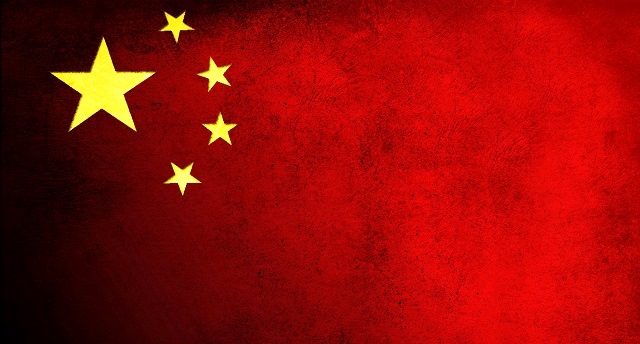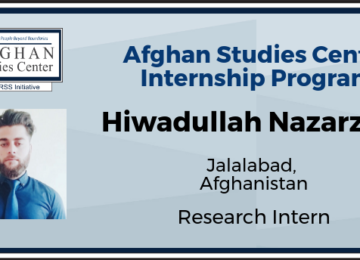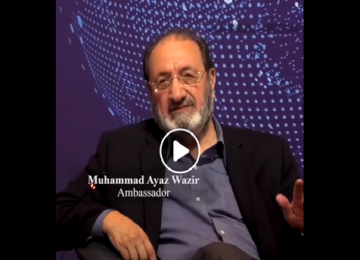America finds it unacceptable. What is so abnormal about it? Is it not a historical fact that any rising power, no matter how carefully and cautiously it pursues its political and strategic objectives, is always despised by powers on the decline. Seen against this background, one can understand the wariness of President Donald Trump targeting China, and Russia or their new alliances seeking re-adjustments or resets in the present world order.
The policy makers around President Trump have not given up on Trump’s China rhetoric. They continue to see China as a threat to strategic objection such as “America First”, a euphemism for “America alone”. They keep an eagle eye at the China’s growing ties in the region – including the China-Pakistan Economic Corridor and Beijing’s efforts to forge stronger relations with Nepal, Sri Lanka, Maldives and Bhutan. And also how China deftly handled provocative India during the Donglang (Doklam) standoff last summer, to maintain peace and tranquility in the region and not get distracted from its reform and development agenda.
The milestones set out during the 19th CPC National Congress held in October 2017 must be disturbing for the given the outstanding economic achievements and formidable military prowess. There is little room for doubt that China would not achieve basic modernisation by 2035 and great nation status by 2050. President Xi himself, in his report, openly and boldly said, China “has become a great power in the world”, He emphasised for those who nursed some doubt that ” China, a huge ship, will (not) sail to the glorious shore.”
Already, China has poured billions of dollars in investment in industry, agriculture, and infrastructure projects across most of the world. Xi has also built up the military and raised China’s profile on the world stage. According to China Daily (18/10/17), a leading academic at the Chinese University of Hong Kong reckons that: “By the middle of this century or before, China aims to close the gap economically and militarily with the United States and become the ultimate arbiter in the Asia-Pacific region”. So, what all this symbolises to American policy makers? Can they sleep well over proactive, confident and re-surging China’s global engagement in the zero sum games of President Trump?
Ignore the Trump’s election rhetoric, but then note that President Trump actually did not display any eagerness to engage South Asia, especially Afghanistan where the US is bogged down in a 16-year old war that it is unable to win. The first sign of his personal engagement came when on August 21, 2017 he declared new US war strategy in Afghanistan. In his three pillars strategy, the US shifted from “time-based approach to one based on conditions on the ground, discarding arbitrary timetables.” Foreseeing a political settlement with elements of the Taliban, the strategy emphasised that the U.S. must change its approach on how to deal with Pakistan, which he said provides safe havens for terrorists, adding that the U.S. must further develop its relationship to India. China was missing but in words, not from the mindset determining the future course for American led sunshine in the region.
What followed later between Pakistan, Afghanistan and the US and how the US administration tried to prop up India has crystallised Trump’s deep desire to restrain China’s growing power. Pakistan, Afghanistan and India appear to be the means to secure the “America First” status. America is looking beyond “fixing Pakistan its erstwhile ally” or establishing peace in the region. A glimpse of the not so-concealed agenda is available in his first National Security Strategy (NSS) where Russia and China are portrayed as “revisionist powers,” and listed as “competitors” seeking to alter the status quo that favours the United States.
China has urged the US to stop deliberately distorting its strategic intentions and to abandon the Cold War mentality. Chinese Foreign Ministry spokesperson Miss Hua’s hoped that “China and the United States should properly handle their differences on the basis of respecting each other’s core interests and major concerns, the U.S. side will take China-U.S. relations objectively and rationally, and abide by its commitments” (Xinhua 19/12/17).
The Aljazeera TV has asked the valid question by singling out Russian Federation and China, and how will these plans for US national security affect its international standing? Einar Tangen, CGTN current affairs commentator, explains what effect Trump’s new NSS will bring to China-US relations next year or even for the long-term, remarking that the new NSS means that it will be America “alone,” not “America First.”
No matter how fruitful and productive Trump’s engagement with China, something like his Asian tour resulting in trade agreements worth $253.4 billion, Trump would not be able to pursue a balanced policy towards China. Because the core of the strategy thought out for Trump as given in the newly published book entitled Fire and Fury by Michael Wolff stays intact and vibrant: “China’s everything. Nothing else matters. We don’t get China right, we don’t get anything right”.
This is the core, which will survive and run through the Trump’s administration even without Steve Bannon. The new game of politics is mostly networking, just like in business. In politics, the game is trickier. More disaster will come if Pakistan does not connect with Afghanistan directly. In this game if Pakistan has to give in on some scores, it is worth it. Winning battles with Afghanistan may not guarantee victory in the final war leading to peace and stability inside Pakistan.
If the Trump remains enamoured with generals, not civilians, then people with military command experience (Mattis, Kelly and McMaster) will take the lead in foreign policy. Pakistan should forget that the US would strike out a balance in its policy towards India. Often there would be situations where Pakistan would find itself squashed unjustly. But then, Pakistan has to be prepared for this kind of exploitation despite having communication and supply line open to US military. As long as Pakistan sides with China as a strategic partner in achieving China’s new goalposts, the US will not treat Pakistan differently.
Wolff finds out that “In practice, the new foreign policy, an effective Trump doctrine, was to reduce the board to three elements: powers we can work with, powers we cannot work with, and those without enough power whom we can functionally disregard or sacrifice. It was cold war stuff. And, indeed, in the larger Trump view, it was during the cold war that time and circumstance gave the United States its greatest global advantage. That was when America was great”. Good that Steve Bannon is out but his ideas are very much pulsating in Trump-ism.
Pakistanis should not ignore the overall view in the book that ” the story of the next generation had been written, and it was about war with China. Commercial war, trade war, cultural war, diplomatic war.” In my view, the US cannot harm China too much. So it has shortlisted Pakistan for punishment being China’s’ front man in the region. This time Pakistan may suffer retribution rather than reward for its strategic location. Consistent diplomatic engagement with the US administration maybe helpful but will certainly not bail out Pakistan from the current bind it has entered due to its alleged links with the Taliban and strong strategic co-operation with China.
The author is a former diplomat.
© Center for Research and Security Studies (CRSS) and Afghan Studies Center (ASC), Islamabad.








